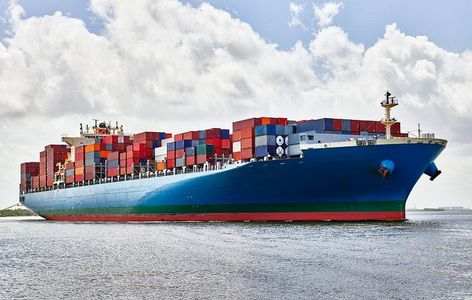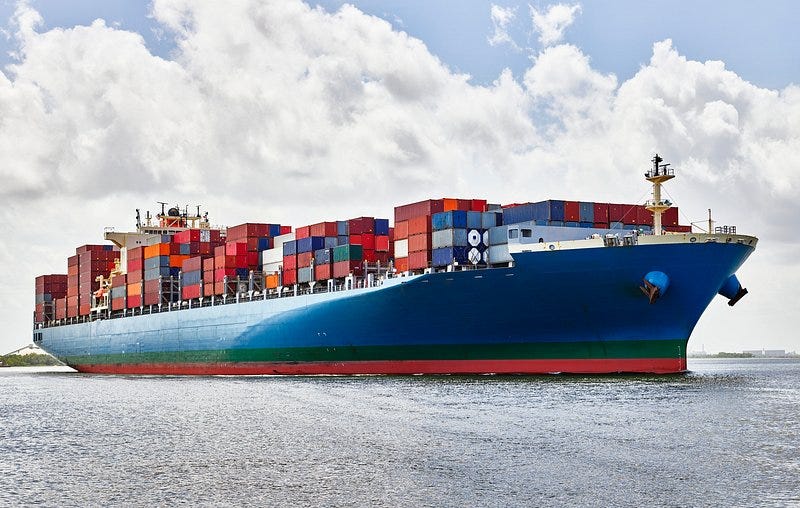The Booming Growth of Courier and Delivery Services Around the World
 Avneet Singh
27 Jan, 2025
9 mins read
150
Avneet Singh
27 Jan, 2025
9 mins read
150

Whether it’s e-commerce giants, local businesses, or international suppliers, courier and delivery services have become essential for connecting goods to consumers around the world. But what’s behind this surge? Let’s explore the factors contributing to the growth of this industry and what it means for the future of commerce.

The Rise of E-Commerce and Online Shopping
One of the most significant drivers of the booming courier and delivery services market is the rise of e-commerce. In the last decade, online shopping has exploded, with millions of consumers turning to the internet for everything from clothing and electronics to groceries and furniture. In fact, global e-commerce sales are projected to surpass $7 trillion by 2025, a staggering increase from earlier years. This shift in consumer behavior has led to an increased demand for fast, reliable, and cost-effective delivery services.
Courier and delivery services play a crucial role in ensuring that goods purchased online reach consumers quickly and safely. Companies like Amazon, FedEx, UPS, and regional players have developed robust networks to handle this ever-growing demand. The need for faster delivery times has prompted innovations such as same-day and next-day delivery options, which have become a standard expectation for consumers. In response, courier services have adapted by expanding their fleets, enhancing tracking technology, and improving their logistics operations to meet these new expectations.
Consumer Expectations for Faster Deliveries
As the world becomes more interconnected, consumer expectations are shifting. The idea of waiting days, or even weeks, for a package to arrive is no longer acceptable in many markets. The growing appetite for fast shipping, spurred by industry leaders like Amazon with its Prime service, has created a new normal in the courier and delivery services space. Consumers now expect to receive their packages within hours or at most a couple of days.
The increased demand for rapid deliveries has pushed courier companies to optimize their operations. To meet the pressure for faster services, businesses are leveraging advanced technologies like artificial intelligence (AI), machine learning, and route optimization algorithms to streamline delivery routes, reduce costs, and minimize delays. The expansion of local distribution hubs, often referred to as “last-mile delivery†networks, has also become a key area of focus. These hubs allow courier companies to store inventory closer to the customer, facilitating quicker shipping and delivery times.
Impact of Globalization
The growth of globalization has also played a pivotal role in the expansion of the courier and delivery services market. As businesses expand their reach beyond national borders, there is an increasing need for cross-border logistics solutions. International trade has skyrocketed, and companies are now sourcing products from every corner of the world. In this global economy, courier and delivery services are the backbone that ensures the smooth flow of goods from one country to another.
International courier and delivery services help businesses manage the complexities of cross-border shipments, including customs clearance, taxes, and regulations. The demand for international shipping services has increased so significantly that courier companies have invested heavily in enhancing their international infrastructure, including building more efficient customs processes and providing real-time tracking to keep consumers updated on the status of their packages. Additionally, the growing number of international shipping routes has allowed businesses to tap into new markets and offer their products to customers around the globe.
The Growth of On-Demand Delivery Services
In addition to traditional courier services, on-demand delivery services have exploded in popularity, particularly in urban areas. These services, which allow customers to request deliveries on a per-order basis, have become a vital part of everyday life. Think of food delivery apps like Uber Eats, DoorDash, and Grubhub, or grocery delivery services like Instacart. These platforms connect consumers with local couriers who can quickly deliver food, groceries, and even packages directly to their doors.
The success of on-demand delivery services can be attributed to their convenience and speed. By leveraging a network of gig workers and real-time tracking technology, these platforms can offer delivery services in a matter of hours, sometimes even minutes. This instant gratification has become a major selling point for consumers who are increasingly valuing convenience and speed in their purchasing decisions.
The Role of Technology in Shaping the Future
Advancements in technology are reshaping the way courier and delivery services operate. The integration of GPS tracking, automated delivery systems, and drones has already begun to transform the industry. Delivery companies are increasingly using artificial intelligence and machine learning to predict demand, optimize routes, and ensure that parcels reach their destination with minimal delays.
Drone delivery, in particular, is an exciting development that could revolutionize the courier and delivery services industry in the coming years. Companies like Amazon and Google’s Wing are already testing drone-based delivery systems in various regions. With the ability to bypass traditional road traffic, drones could provide faster and more efficient deliveries, especially in remote areas or congested urban centers.
Moreover, autonomous delivery vehicles and robots are gradually entering the scene, offering another way to speed up deliveries and reduce operational costs. These advancements in technology promise to make the entire logistics process more efficient, reducing the environmental impact of delivery services while simultaneously improving delivery times.
Sustainability and Green Initiatives
As the courier and delivery services industry grows, there is an increasing focus on sustainability. With more deliveries being made, particularly through air and road transportation, carbon emissions from courier vehicles have become a significant concern. In response, many delivery companies are making efforts to reduce their environmental footprint by investing in electric vehicles, using eco-friendly packaging, and implementing carbon offset programs.
Sustainability is no longer just a trend but a necessity. Consumers are becoming more environmentally conscious, and businesses in the courier and delivery services industry are responding to this demand by adopting greener practices to reduce their environmental impact.
Conclusion
The global courier and delivery services industry is flourishing, driven by the growth of e-commerce, consumer demand for faster deliveries, and the ever-increasing need for global connectivity. The rise of on-demand delivery services, coupled with technological innovations and sustainability efforts, suggests that the industry is poised for even further expansion. As the world becomes more digitally connected and consumers expect faster, more efficient services, the courier and delivery services market will continue to adapt and evolve, shaping the future of global commerce.
Written By:
Avneet Singh



Hotels at your convenience
Now choose your stay according to your preference. From finding a place for your dream destination or a mere weekend getaway to business accommodations or brief stay, we have got you covered. Explore hotels as per your mood.





